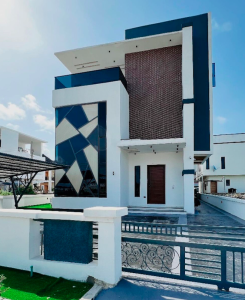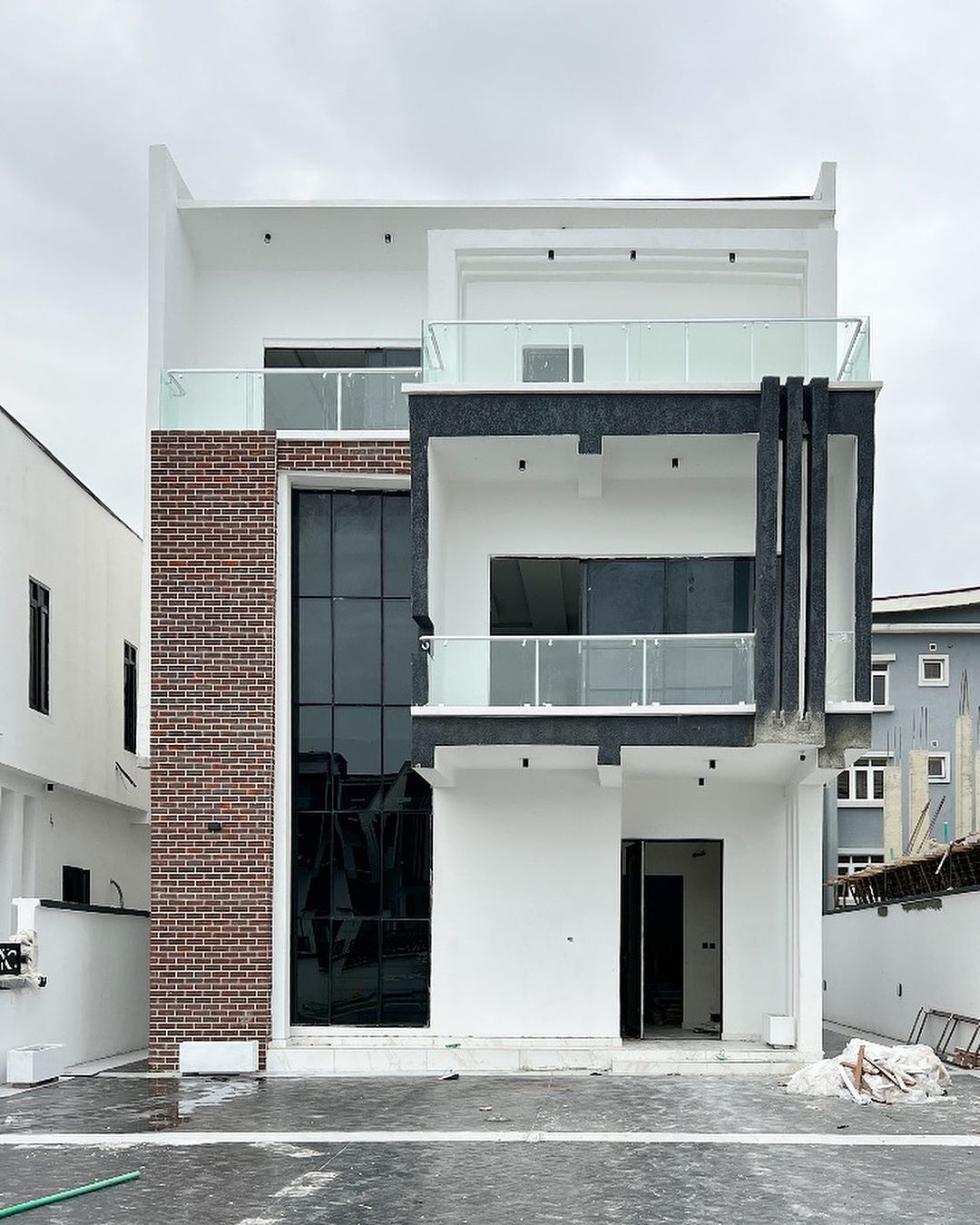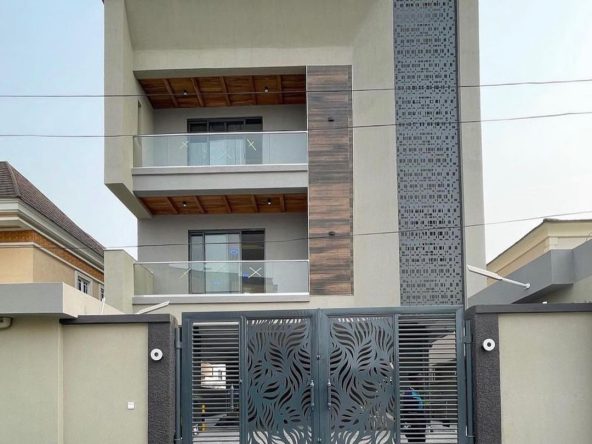
Heading 1
Structure
– Introduction
You can get any of these our 2 bedroom waterfront terrace duplexes with a mortgage. However I wont lie to you, mortgages in Nigeria are a nightmare.
And it’s rather unfortunate because we get enquires daily, many of whom are young upward mobile people and first time home buyers but they can’t afford to pay it off once. I sympathise with them because in an ideal society, these people go up the property ladder easily through mortgages. However our mortgage system is in a crisis and in this video i will try to explain the problem and possibly offer some solutions. And it’s not that these mortgages don’t exist in Nigeria, oh they do but the problem is that the volume is too low therefore your are competing with thousands of other Nigerians for the limited resources and that leads to long wait times that are often experienced as we. And this is the reason Nigeria has one of the lowest home ownership rates in the world. Somewhere around 25%.
My name is…
– Definition
A mortgage is a loan taken to purchase a property and secured by the property itself. What this means is that where you typically have to drop a collateral to access a normal loan, in mortgages, the house is the collateral. And if you default, the house is taken back from you.
– Types of mortgages
There are 2 types of mortgages in Nigeria. One from the government and one from commercial banks.
The one from the government is called the NHF which is controlled by the FMBN.
What are the terms of the NHF Mortgage
– 2.5% of basic monthly salary or income for at least 6 mths
– The maximum loan amount used to be 15m but there are recent reports that it has been increased to to 50m. For a max of 30yrs
– 6% interest per annum
– Loan of above 5m needs an equity contribution of 10%
– Must have an account and the funds disbursed and accreditation done through a primary mortgage bank. You have no business with FMBN. Last I checked there are just about 12 Accredited PMBs in Nigeria.
Loan Amount criteria.
The loan amount a contributor qualifies for is determined by:
– Monthly salary/income: The monthly repayment must not exceed 33.3% of the borrowers income.
Bottlenecks
– It moves in batches of 10. So either wait till a group is complete or form a group and enter the pool together.
– It is not disbursed till a house is 90% liveable
– Takes about 6-9mths to process, based on Nigeria. Developer wont wait
– A way to mitigate this is to take a bridge loan from a PMB at 20% for 6mth to settle the developer and then continue the nhf for the estimated number of years.
– Years to retirement:
FMBN – NHF (6% on reducing balance) – Issued by the government. One of the the reason why this flops is because there are a lot of people looking for it and also liquidity is low. There isnt enough rolling funds to adequately fiannce it
Second Type Commercial (20-26% ) – These are mortgage issued by commercial banks or primary mortgage banks. Most popular commercial banks have a mortgage arm( First bank, access, stanbic, Union) they dont just promote it as much because there is really no incentive for them to do that. Banks are not incentivised to give out mortgage loans because it doesn’t favour them. Mortgages are typically long term loans and deposit funds are short term. Also the Naira is very unpredictable especially for those that raise money abroad to issue out mortgages, they raise money in usd, give out the loans in naira and have to payback in dollar and with the naira loosing value constantly and they scramble to payback. Also there are other less risky thing they can do with depositor funds than give mortgage.
Unlike the NHF, this loan takes as little as 3 weeks. However many people run away from it because of the high interest rates. Which range around 25%.
Hold on, don’t kill the banks. It’s not their fault, there is something called the MPR which makes them charge that high. MPR is the amount banks get money from CBN and Its currently at 18%. So banks have to charge above that to make a profit.
Now let me try to make a case for mortgages
Let’s analyse this our 2 bed room waterfront terrace for example. Its current in the market for 50m.
10yr morgage @25% repayment for a 50m home ( remember 30% equity contribution).
This is just an example. I will never advise anyone to take a 5yr bank loan to buy a house in Nigeria. Talk-less 10yrs.
Max is 3yrs and should pay 50% equity upfront.
Repayment @25% | rental returns | real cash cost | Cap Appr.(5%) | Cap Appr.(10%) | True cost | Home value(5%) | |
Year 1 | 9,554,700 | 3,000,000 | 6,554,700 | 2,500,000 | 5,000,000 | 4,500,000 | 55,000,000 |
Year 2 | 9,554,700 | 3,000,000 | 6,554,700 | 2,625,000 | 5,500,000 | ||
Year 3 | 9,554,700 | 3,000,000 | 6,554,700 | 2,756,250 | 6,050,000 | 55,125,000 | |
Year 4 | 9,554,700 | 3,500,000 | 6,054,700 | 2,894,062 | 6,655,000 | 57,881,250 | |
Year 5 | 9,554,700 | 3,500,000 | 6,054,700 | 3,038,765 | 7,320,500 | 60,775,312 | |
Year 6 | 9,554,700 | 4,000,000 | 5,554,700 | 3,190,703 | 8,052,550 | 63,814,077 | |
Year 7 | 9,554,700 | 4,000,000 | 5,554,700 | 3,350,239 | 8,857,805 | 67,004,780 | |
Year 8 | 9,554,700 | 4,000,000 | 5,554,700 | 3,517,750 | 9,743,585 | 70,355,019 | |
Year 9 | 9,554,700 | 4,500,000 | 5,054,700 | 3,693,638 | 10,717,944 | 73,872,769 | |
Year 10 | 9,554,700 | 4,500,000 | 5,054,700 | 3,878,320 | 11,789,384 | 77,566,407 | |
95,547,000 | 37,000,000 |
| 31,444,727 | 79,686,768 |
Returns (10%) – 116,686,768
Total Cost – 110, 547,000 (added 15m equity)
Profit – 6m
The house will actually cost you 27,102,273 + 15,000,000 = 42,102,273
For 3years, yearly repayment will be 16.7m and 50m payback end of tenure with cumulative interest of 15m.
You can sell off your house at anytime to capture the value of the capital appreciation. pay off the lender and keep your profit. For every year you hold the house, thats an appreciation a lender or banker cant do anything about.
Make sure you buy in a fast developing area so that the capital appreciation will be fast.
You have an advantage if you are married cause most banks consider spouse joint income.
The best technique to tackle morgages is to have 50% equuity at the start. Then aim to offset 30% of the loan in the first 2 years. Then take your time to pay off the remaining 20% for the remainder of the tenure. If you have bulk money, use 50% for the mortgage and the remain 50% in your business. Multiply it and offset the mortgage with the returns instead of putting everything into one property.
Don’t do more than 5yr for a commercial mortgage
If you dont take the loan now, the money will lose its value over the years. So take advantage of it while you can Example of aunty who refused to take it in 2015.
Improvement value.
Idea of crowdfunding as a group to help each others down payment.
Privatise fmbn
My name is bond…
And for those who dont know A morgage is….Yes morgages do exist in Nigeria. However the processes can be cumbersome and the interest rates arent friendly.
But I will try to make a case for morgages. You are welcom to disagree with me..respectfully.
Govt needs to give cheap land to developers that have money in order to provide cheap loans to people.
Another option is to give banks funds ( real estate fund) like 1 trill so that they loan out to people at 7%
Provide tax incentives for developers who build low income houses. Ones below a certain amount.
Govt provide cheap land.
Govt subsidize building materials. Cement, rods etc Or give dangote a tax break ro fund real estate developers cheaply.
If you build a home, 8-10 nigerians are employed. Thats job creation and consumption and gdp increase. You buy nains, rods, workers eat on site, paint. Finance, insurance, banking are all boosted
Some infrastureture that also aid a mortgage economy include, ability to searvh peoples titles and asset base, speed of approvals and processes and whats involved. If
You can cash yourself out of a mortgage. You get your equity contribution as well as any appreciation.
1/3 of income should cover for the repayment.
Buy multiple lands in devloping areas. After appreciation, sell some and use money to build others.
Go to banks website and play with thier morgage calculators
If you cant meet up with your repayment, you will be evicted and house foreclosed
What the banks need is a refinance company that can buy off these morgagrese from the bank, enabling them to provide more mortgages. The govt can buy these morgages too
Then there are dedicated mortgage banks
The interest is high because the banks must charge higher than the inflation rate to make a profit.

